Figuring out the right platform to host your Laravel app becomes challenging after building it.
Although you'll find many PHP-supporting providers everywhere online, most are unsafe to host Laravel applications. The best Laravel hosting providers offer mind-blowing flexibility, rich performance, reliable security, easy management, and compatibility with the latest development software.
To grease your decision-making process, we tested dozens of hosting providers and handpicked the top ten that’ll serve you best.
The Top 10 Laravel Web Hosting in 2023
Considering high scalability and compatibility with the latest development software, here’s what we have to say:
1. A2Hosting – Best Laravel Shared Hosting

- Free Laravel setup from A2 experts
- Free access to SSH and CDN for all plans
- Supports all versions of PHP, SQL
- Starting from 2.99/month
- Uptime: 100%
- Server Response Time: 319 ms
Pros
- The plans are affordable
- Promises a 99.9% Uptime
- Up to 20X faster turbo servers
Cons
- Customer service could be more responsive.
For Laravel projects, we’d usually recommend that you avoid shared hosting. The limited bandwidth, SSH terminal limitation, and extremely slow servers aren't always worth the risk. A2Hosting, of course, blew our mind.

We found out A2 Hosting supports several versions of PHP, FTP/SFTP, MySQL, Apache, Node.js, and a few other development software. It granted us free SSH access and SSL certificates. The minimum plan covers up to 100GB SSD storage and unlimited NVMe SSD storage for the turbo-plans.
A2 hosting's load speed is impressive. The websites are hosted on the NVMe AMD EPYC server with a LiteSpeed web server for the turbo-shared plans. They guarantee a 99.9% Uptime, and they have lived true to their promises for the past six months. Their data centers are also located on three continents: America, Europe, and Asia.
A2Hosting’s concentration on security is outstanding. Each plan offers a free Let’s Encrypt SSL certificate, DDoS protection, Dual Firewall, Virus Scanner, and automatic daily backups. They also deploy KernelCare, a tool that updates servers without rebooting or stopping them, and HackScan – a malware scanner that scans your websites 24 hours daily.
Pricing:
The prices are reasonable for the features they offer. At $2.49/mo, you can access a free SSH terminal, 1GB of physical storage, and many more. As expected, the premium tools are hidden in the turbo plans. But you can choose any that best suits your project.
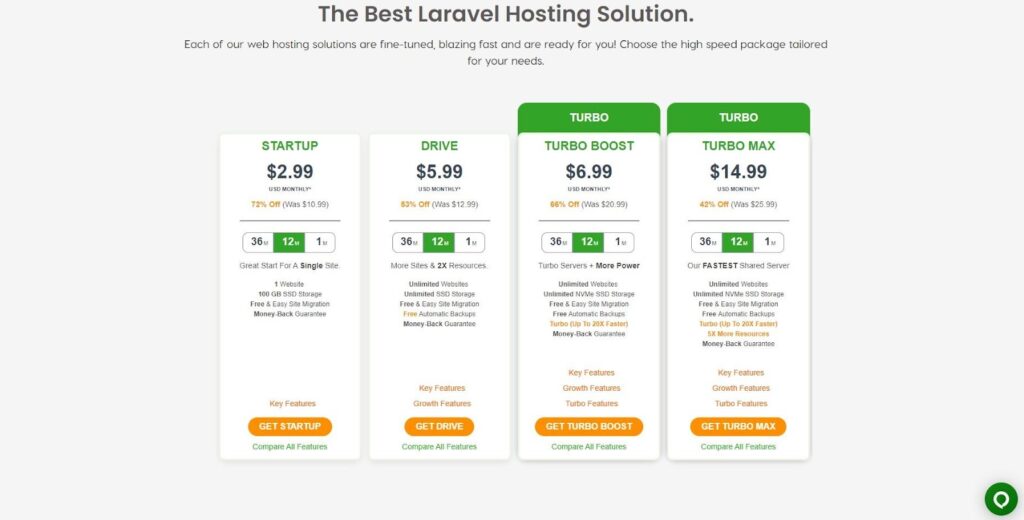
2. CloudWays – Best Laravel Cloud Hosting

- Uses AI to track server performance
- Provides access to several cloud hosting providers
- 1-click Laravel installation
- Starting from 12/month
Pros
- It has an intuitive UI
- Provides managed security on all plans
- Reliable customer support
Cons
- Lack of emailing abilities
- The platform has a steep learning curve
Cloudways hosting impressed us as the best in Laravel cloud hosting. We love how users enjoy a variety of cloud hosting service providers – Digital Ocean, Linode, Viltr, Amazon Web Services, and Google Cloud hosting.
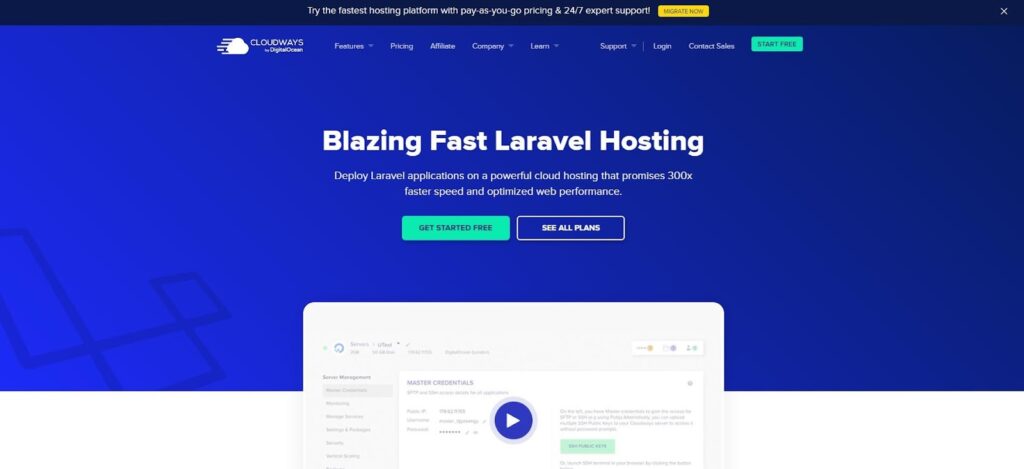
Cloudways offers a user-friendly UI where you can easily manage AWS, GCE, Linode, Viltr, and DO servers in one place. Installing Laravel was also easy and fast for us. It has almost everything you need to build, deploy and maintain PHP applications.
You’re welcomed with a minimalist and intuitive UI when logged in. Here, you’d choose the management application server needed to deploy your app, data center, and server size. Cloudways has over 8000 data centers globally, so pick the area closest to your audience.
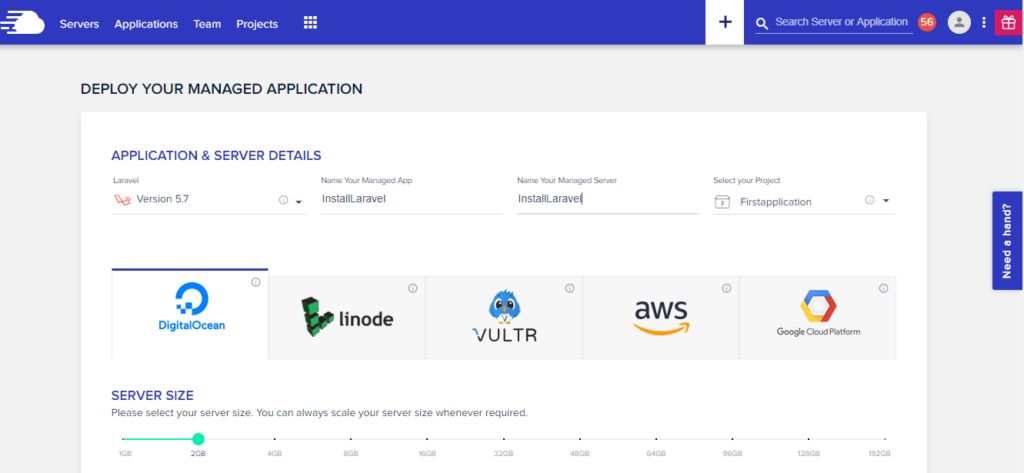
You’ll find the core servers on the dashboard needed to manage your application: MySQL, New Relic, Nginx, PHP FPM, and Vanish. Also, there are a handful of Laravel-friendly features such as Cloudflare CDN, Deployment via GIT, SSL certificate, Cron job management, etc. Each server comes with Free Let's Encrypt SSL certificate, end-to-end encryption, and Cloudflare to safeguard your website from DDoS attacks.
Pricing:
The prices differ depending on your chosen server. Digital Ocean costs $12/mo, and GCE costs $33.18/mo.

3. Inmotion Hosting – VPS Laravel Hosting

- Solid security features
- NVMe SSD storage
- Unlimited bandwidth
- Starting from $19.99/month
- Uptime: 100%
- Server Response Time: 273 ms
Pros
- 100% uptime
- A very flexible and reliable host
- Ultra-fast performance
Cons
- The servers are located in the US
- Back-ups attract an extra charge
InMotion offers two types of VPS hosting: Managed VPS hosting and cloud VPS. Both plans come with a web host manager (WHM), cPanel, launch assist, and 24/7 live support.

The smallest plan of Inmotion VPS hosting welcomed us with all we needed to get started. You can access FTP, FTPS, SFTP, SSH, NGINX, PHP-FPM, Redis, and Apache. You'll enjoy unlimited bandwidth, two dedicated IP addresses, and SSH access for all plans.
From our test on InMotion, the NVMe SSD storage mitigates server redundancy, increasing response time and speed. Also, the web host is fully secured with Cordero DDoS site protection, on-demand live snapshots, free malware protection, and automatic backups.
Rest assured, their Support team is readily available for your needs. We tested the live ticket support, and the response time is almost immediate. Overall, there aren't any red flags apart from the extra charges their back-ups attract.
Pricing:
There are four pricing plans and the least starts from $19.99/mo.
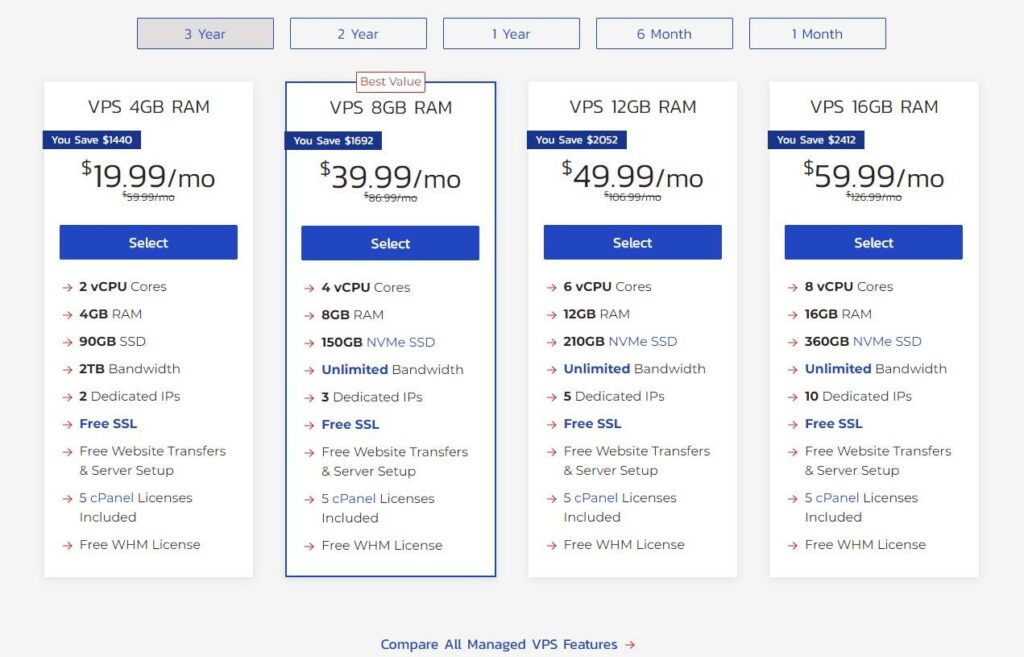
4. Heroku – Laravel Application Hosting

- Allows integration with Gitlab and GitHub
- It has an intuitive graphic user interface
- Scales vertically and horizontally
- Highly responsive SLAs
- Starting from $5/month
Pros
- It has an informative library of resources
- Prices are pretty affordable
- Easy to use
Cons
- The prices are quite costly
- Data centers are only available in Europe
Heroku allows developers to easily create, deploy, run and monitor applications on the cloud. The apps are hosted in smart containers called dynos, where the Heroku team manages the other aspects of ops.
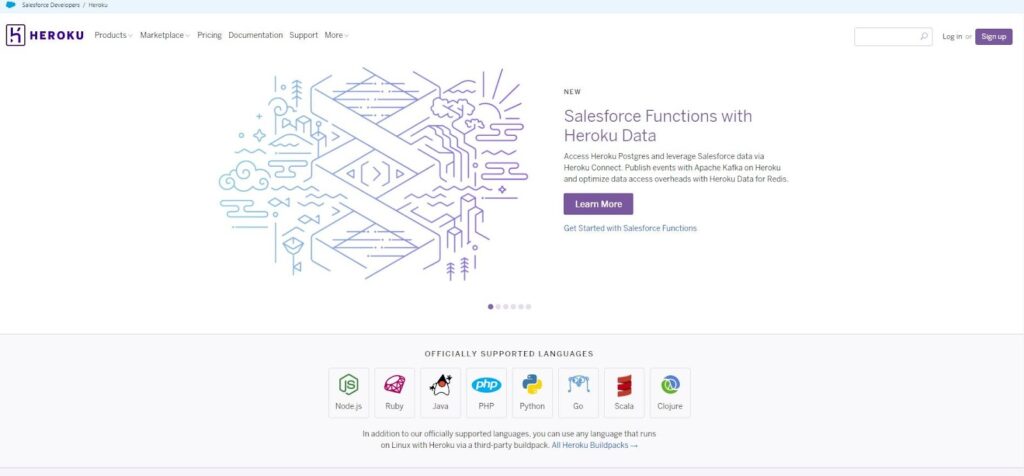
The major benefit that stood out is its flexibility and speed. Heroku allows the integration of over 150 add-ons, including Redis, New Relic APM, Maria DB, SFTP/FTPS, CDN, and SSL. You can easily deploy your code from Git, GitHub, Docker, or even using an API.
The UI isn’t sidelined too. From the dashboard, you can monitor and enhance the performance of your servers through real-time analytics. Plus, a handful of tutorials and blogs will guide you when deploying your Laravel app on Heroku.
For security, everything you’d need is available in the marketplace. You’d find SSL certificates, web application firewalls, automatic secure keys, etc. Overall, Heroku is flexible, and we love that developers can focus on creating Laravel apps rather than maintenance. The data centers are located in Europe, America, and Asia.
If you want to explore similar and alternatives to Heroku: 10 Best Heroku Alternatives (Compared)
Pricing:
Heroku offers four-tier pricing: Eco, production, advanced, and enterprise. The least plan, eco dynos, starts at $5 for 1000 hours per month.
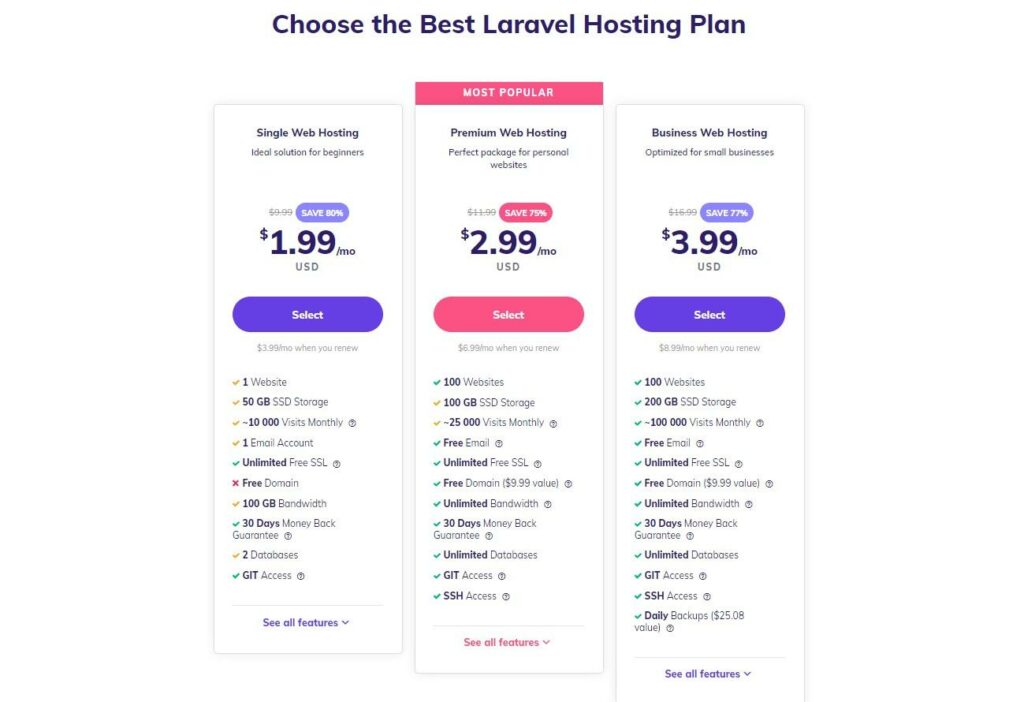
5. Hostgator – Laravel Dedicated Hosting

- Offers fully and semi-managed dedicated plans
- Provides full customization features
- Intel Xeon-D CPU
- Starting from $89.98/month
- Uptime: 100%
- Speed: 585 ms
Pros
- 100% uptime
- Reliable and flexible web hosting
- 24/7 customer service support
Cons
- Pricing may be pretty high for small business owners
- Autorenewal charges are almost 3X the starting prices
Hostgator offers ideally everything you need to manage your servers. You can manage your servers yourself or seek Hostgator’s team assistance to manage them. They have data centers in the US, which is perfect if your audience is based there.

Hostgator uses cPanel, the control panel where you access all you need to get started with Laravel. Here you’ll find Softaculus to install the Laravel application in one click. We love that they have a rich online resource center with over 700 articles and 500 downloadable videos on dedicated hosting.
Compared to other web hosts, we’d rate HostGator performance as average. They have maintained 99.9% Uptime for the last six months. The response time and speed are within the required limits but could be improved.
Pricing: The dedicated hosting plan is split into three tiers: value, power, and enterprise plan. The price ranges from $89.98/mo – $139.99/mo.
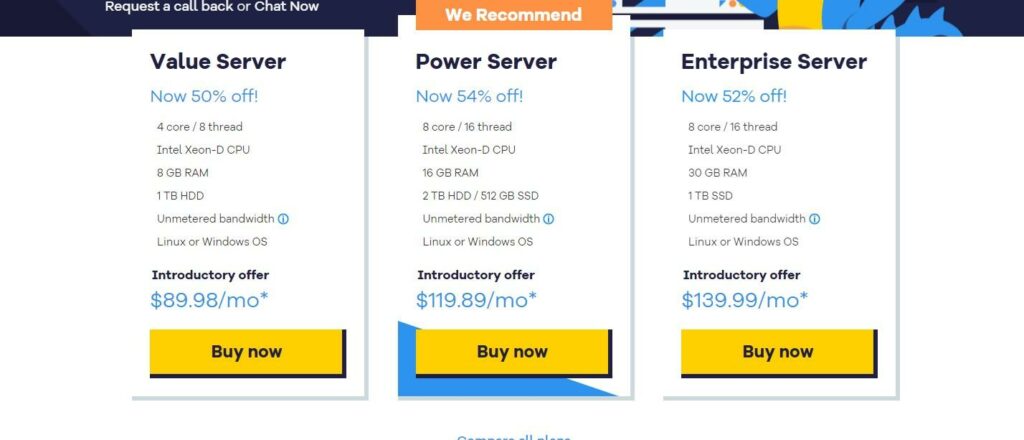
If want to know more about Hostgator read here: Hostgator Review: Pros, Cons and Speed Tests
6. Forge Laravel – Managed Laravel Hosting

- Supports recent versions of MySQL and PHP
- Allows users to create a custom VPS
- Access to SSH keys
- Starting from $12/month
Pros
- Access to real-time metrics of your server’s performance
- Enables automated and scheduled backups
- Solid security features
Cons
- It may be pricey for small business owners or small projects
Trusted by thousands of developers worldwide, Forge is one of the best PHP application server management and deployment platforms. It enables developers to manage Laravel applications on the cloud using cloud service providers like Digital Ocean, AWS, Vultr, and Linode. Ideally, Forge manages everything for you, from configuration to maintenance.
Forge offers many Laravel-friendly features, like the TSL/SSL certificates for security, robust APIs, scheduling cron jobs, recent versions of PHP, and many more. We love the collaboration feature that allows you to interact with other team members without leaving the platform. Cool, right? There’s more.
The Forge control board is intuitive, with a simplistic view that gives a quick overview of the activities ongoing on your servers. You can easily install Laravel in one click, deploy Laravel from your Git repository, schedule backups, add SSH keys to servers, manage servers using APIs, and many more.
We also discovered that they support different servers, including app servers, web servers, database servers, and many others. The platform supports multiple versions of PHP, and you can run multiple PHP versions on your account all at once.
Pricing:
Forge offers a three-tier plan: Hobby, growth, and business. The price ranges from $12/mo to $39/mo.

7. Hostinger – Cheap Web Hosting Laravel

- Access to Git source control and SSH
- Free SSL certificate
- Access to the latest PHP versions
- Starting Price: $1.99/mo
- Uptime: 100%
- Speed: 317 ms
Pros
- Prices are ridiculously cheap
- The backend interface is neat and unique
- cPanel is intuitive and perfect for beginners
Cons
- It doesn't support all versions of Laravel
If you need an affordable Laravel hosting platform, Hostinger is perfect.

The smallest plan comes with everything you need to get started. If your website is new with little traffic, the 50 GB SSD storage, unlimited SSL certificates, and GIT integration look attractive for $1.99/mo. Higher plans come with access to SSH and several other features.
Compared to the regular cPanel, Hostinger uses a more advanced custom-made control panel – hPanel – where you can access tools for deploying and managing your Laravel applications. You can access databases, schedule backups, and manage your DNS here.
If you’re used to the cPanel, you might find the hPanel a bit difficult to navigate at first. Asides from this, there are no other issues.
They have data centers in seven locations worldwide: the UK, the US, the Netherlands, Lithuania, Singapore, Indonesia, and Brazil. Opt for the center closest to your audience to secure the fastest page load speed for them.
As for the security features, Hostinger seems basic to us. Like other providers, they use two-factor authentication to secure your passwords. All the plans come with a weekly and daily backup, free SSL, and Bitninja to protect your servers from DDoS attacks. You can even purchase Cloudflare protection for additional security.
Read More: Hostinger Review
Pricing:
The Laravel plans are split into single, premium, and business web hosting. The least plan costs $1.99/mo.
The Top 3 Free Laravel Hosting
Do you need the most reliable free Laravel web host?
Listed below are three of the best choices from our experience.
1. GoogieHost

- Custom control panel
- Cloudflare protection
- SSH access for the premium plan
- Free
Pros
- Free SSL certificate
- 99% Uptime
- Access to 1GB SSD storage
Cons
- The UI could be improved
- Customer support is almost non-existent
GoogieHost offered us top-notch performance, advanced security features, and ample storage space for developers looking to host their apps online.

You can only manage one website on their server for a free trial. We love that users can access a functional direct admin panel, a custom control panel where you can install or deploy Laravel in one click. Also, they don’t offer free SSH access in any of their plans. You won’t find advanced tools such as Nginx, Cloudflare CDN, databases, or APIs.
GoogieHost has a 99% uptime, which is fair for a free hosting provider. If you want to start a business or expect a ton of traffic, we advise that you check Digital Ocean, a free cloud hosting provider. We also experienced a prolonged page loading speed. But this isn’t a major issue since it’s common with shared hosting plans.
We noticed that the best features come in the paid plan. You have unlimited bandwidth, a cPanel, NVMe SSD storage, unlimited databases (MySQL), etc.
Pricing:
The premium plan for this provider costs $1.99/mo, which is pretty affordable for its features.
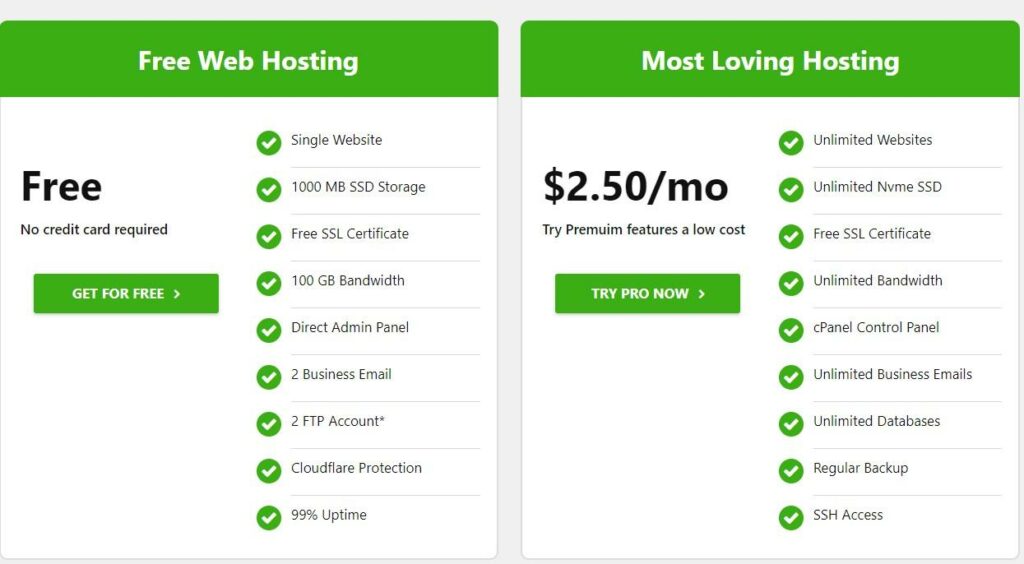
2. Digital Ocean (DO)

- Modern and intuitive control panel
- 100% uptime
- Support recent versions of databases like MySQL, Redis, and Postgresql
- Free $200 credits for new users
- Uptime: 100%
- Server Response Time: 256 ms
Pros
- Access to a plethora of learning resources
- Free $200 credit for first-time users
Cons
- Lack of CDN
- Premium features attract an extra fee
Digital Ocean is another free web hosting provider where you can run your Laravel application in minutes!
Like Cloudways, the platform is built to help developers manage ops, databases, servers, and other dependencies.
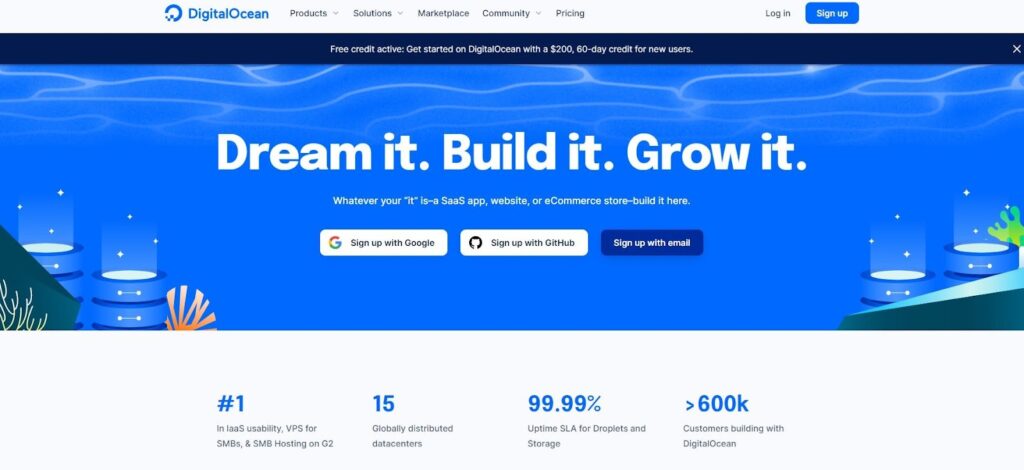
Digital Ocean gave us a sleek, clean, and modern UI.
You’ll enjoy navigating the platform; everything is neatly tailored to provide seamless UX. Immediately you connect your GitHub account to DO, you'll be able to access all your repositories. In less than 10 minutes, you can deploy your Laravel application from your GitHub repository or other web-based repositories.
We also love the rich features you get absolutely for free. For the first year, first-time users get a free $200 for 60 days. Within this time frame, you can explore the tools and features to know if it's your best plan. DO supports several databases, including Postgresql, MySQL, Redis, and MongoDB. It also provides root access to SSH, FTP, and SFTP. The platform is flexible, and you can easily customize your Laravel applications.

3. Awardspace

- Access to MySQL database
- Free FTP account
- Uses an updated version of PHP
- Free
Pros
- All features are free
- No obstructing ads on the platform
Cons
- No SSL certificate
- No SSH root access
- Users cannot backup data
Awardspace is a free hosting provider that developers can use to deploy Laravel applications.
The cPanel is integrated with the interface, making it easier to access all you need in one place. But the interface is messy and full of ads, so it might be challenging to find what you need.
Since Adwardspace offers a free plan, you get 1GB disk space, 5GB bandwidth, and full MySQL database support.
The performance could be more reliable, as the uptime is way below the standard. They promise 99.9% uptime, but we got 88.20% from our estimates.
Pricing:
Creating an account with AwardSpace is free. The premium plan starts at $4.57/mo for web Pro plus and $5.83/mo for Max Pack plus.
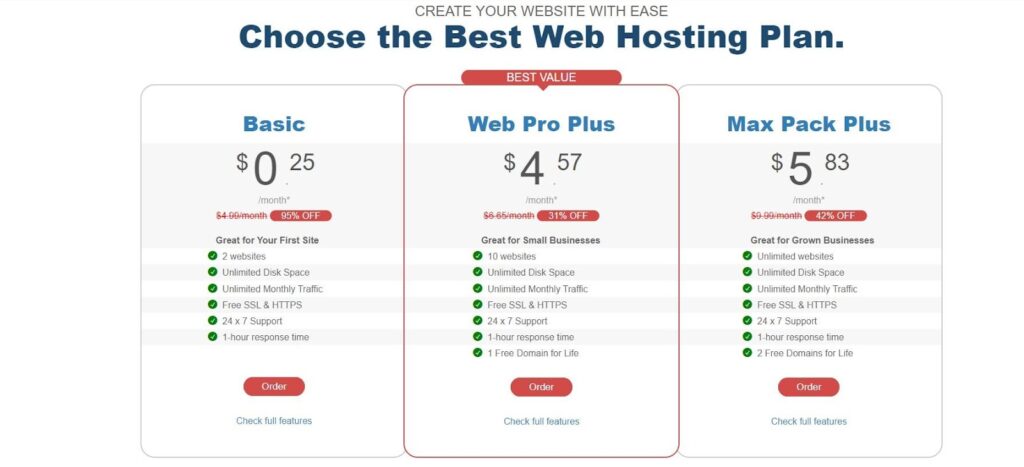
Conclusion
Now, you can deploy your Laravel app with ease! Choose any listed Laravel hosting providers to get your project live and running. They offer a money-back guarantee, so you can discover which is best for your project needs.
FAQs
Laravel hosting is a web host provider that allows you to build or deploy PHP applications on the web. The best Laravel hosting platforms are fast, fully customizable, and secure with SSH access.
To upload Laravel on a shared hosting provider, follow these simple steps:
-Remove the public link from the URL. This will enable your code not to need the PHP artisan command to access your Laravel project.
– Open your database using MySQL.
– ZIP your Laravel project
– Create a database for your project in your custom panel
– Then, import your database from the local environment into the shared hosting platform
– Open the File Manager tab on your cPanel and upload your Laravel ZIP file into the public_html folder
– Extract your file directly into the public_html folder
– Update your database details – username, database name, and password – in the config file and click save
– Lastly, secure your .env and .htaccess files.
Godwin has spent more than 5 years crafting engaging web articles for martech companies. He has contributed to Benzinga, Entrepreneur, Hackernoon, Blocktelegraph, and some other top martech brands that prioritise solutions to challenges online businesses face.



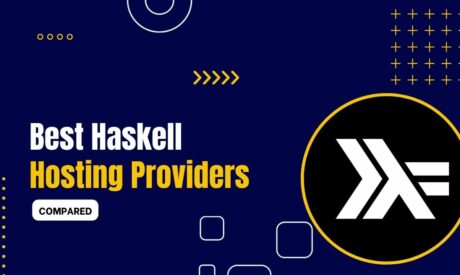




Comments